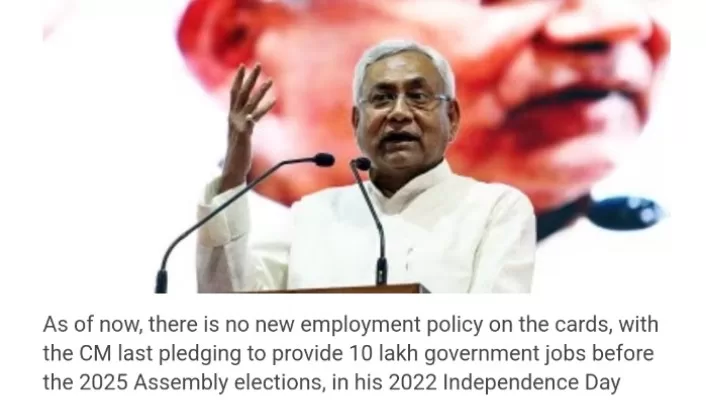Bihar Chief Minister Nitish Kumar’s push to increase reservations in government jobs to 65% faces a significant hurdle as the recent caste survey discloses stark imbalances in employment across different communities. Despite the proposed quota hike, the survey results, released on October 2, indicate that merely 1.5% of Bihar’s population is currently employed in government positions.
Detailed findings from the survey underscore disparities between castes in government employment. While the general category constitutes 15.5% of the state’s population, it holds a disproportionate 31.29% share in government jobs. Conversely, Other Backward Classes (OBCs), representing 27.12% of the population, only account for 1.75% of government jobs. Similarly, Scheduled Castes (SCs) and Scheduled Tribes (STs) make up 19.65% and 1.68% of the population but hold a meager 1.13% and 1.37% of government jobs, respectively.
The survey also reveals that Extremely Backward Classes (EBC), comprising 36.01% of the state’s population, have a mere 0.98% representation in government jobs.
Despite the alarming data, Chief Minister Nitish Kumar has not announced a new employment policy, standing by his commitment to create 10 lakh government jobs before the 2025 Assembly elections, as declared in his 2022 Independence Day speech. The government has appointed 1.22 lakh teachers and notified an additional 1.22 lakh posts since then.
Deputy Chief Minister Tejashwi Yadav remains optimistic about fulfilling the government’s promises, emphasizing the implementation of employment schemes to boost self-employment. However, economists raise concerns about the sustainability of the government’s job creation strategy, with a need to diversify employment sectors beyond agriculture.
The Bharatiya Janata Party (BJP) has criticized Nitish Kumar’s promises, expressing concerns about the financial burden on the state exchequer. The recent announcement of financial aid to poor families adds to these apprehensions, with the BJP calling for transparency on fund generation.
As Bihar navigates its employment challenges, the caste survey brings to light not only the need for increased opportunities but also the imperative to address the root causes of employment disparities across different communities.







